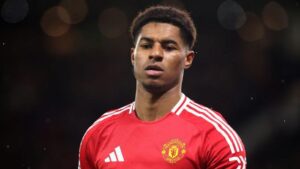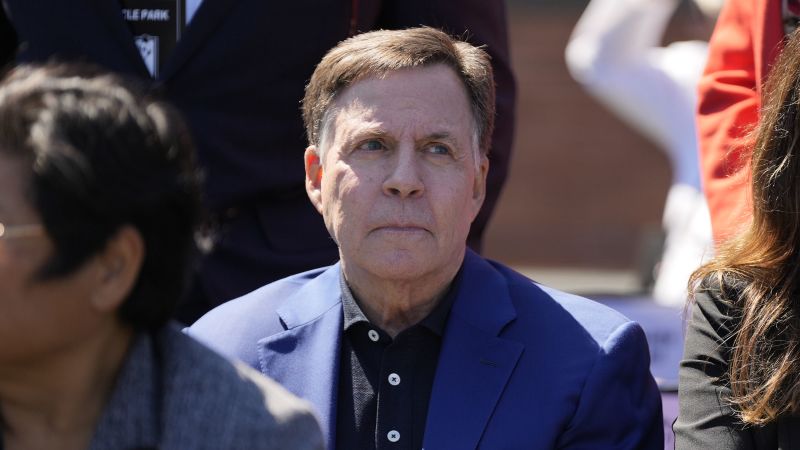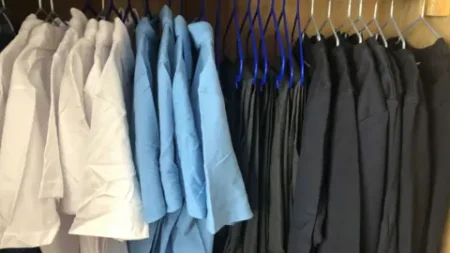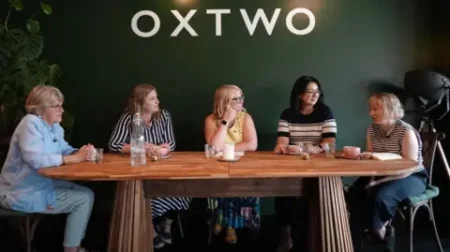In a recent address at an awards ceremony held at the Edison Ballroom in New York, renowned sports broadcaster Bob Costas launched a passionate critique of the current state of the free press in the United States. Accepting a lifetime achievement Mirror Award for his unique and significant contributions to the public’s understanding of the media, Costas took the opportunity to address what he perceives as a pressing threat to journalism. “The free press is under attack,” he stated emphatically, further asserting that “democracy as we know it is under attack” as well.
During the event, Costas reflected on his illustrious 50-year career in sports journalism. However, his remarks quickly evolved into a blistering indictment of the challenges facing sports media, particularly as it relates to the actions of President Donald Trump’s administration. He pointed out the unprecedented hostility toward journalism, describing it as fundamentally different from any previous instance in American history. At 73 years old, Costas remarked that “what’s happening now are not matters of small degree,” pointing to personal lawsuits, Federal Communications Commission (FCC) investigations, and restrictions on press access as part of a disturbing trend.
One of the more striking examples he highlighted was the case of ABC becoming “intimidated” into reviewing anchor George Stephanopoulos following a defamation lawsuit from Trump. Costas criticized the network’s decision to settle the multimillion-dollar lawsuit after Stephanopoulos’s remarks regarding Trump’s liability in the E. Jean Carroll case, suggesting that it was unnecessary to pay “a $15 million ransom.” He argued that merely stating that “George misspoke” would have sufficed, pointing to a troubling precedent where financial ramifications dictate journalistic integrity.
Furthermore, Costas turned his focus to CBS News, questioning whether Shari Redstone, the controlling figure of Paramount Global, felt pressured to compromise the integrity of the broadcast journalism institution “60 Minutes” to facilitate a merger with Skydance Media. This merger requires approval from Trump’s administration, exposing how business interests are intertwined with media operations and leading to a compromise of ethical standards. He called out the network for reportedly trying to settle a dubious lawsuit brought by Trump, highlighting the controversy it has stirred among CBS journalists.
Referring to the broader environment, Costas generalized these actions as “ongoing assaults on the basic idea of a free press.” While he acknowledged that mainstream media has its own flaws and occasional shortcomings, he underscored that the alternative—what he referred to as “MAGA media,” or Trump’s perspective of the world—was not a viable solution to the challenges of modern journalism.
Costas openly addressed criticisms he has faced, particularly from sports fans who have expressed disappointment over his political stances. He described hearing sentiments such as, “I used to love Bob Costas, but then he turned political.” Unfazed by this backlash, Costas stated, “I wear that as a badge of honor,” illustrating his commitment to addressing political and social issues through his platform.
The former NBC Sports anchor has faced scrutiny for using his influence to highlight controversial topics, including a notable instance in December 2012, when he spoke out on gun control following a tragic incident involving a Kansas City Chiefs linebacker. After leaving NBC Sports in 2019, Costas lamented the decline in thorough coverage of the social and political dynamics surrounding sports, advocating for topical discussions that address these critical issues rather than relegating them to brief mentions.
Costas expressed concern that broadcasters are increasingly silent on pressing matters, becoming overly deferential to sports leagues and avoiding tough questions. He questioned the absence of in-depth interviews with key figures like NFL Commissioner Roger Goodell, suggesting that the reporting landscape could greatly benefit from a more robust approach to challenging subjects.
In closing, Costas encapsulated the ongoing dilemma of sports broadcasting by asserting, “Sports isn’t brain surgery, but it doesn’t have to be brain dead either.” This statement reflects his desire for a more dynamic engagement with the key issues impacting sports today, which calls for not only a re-evaluation of media practices but also a call to action for the journalists who cover them.











